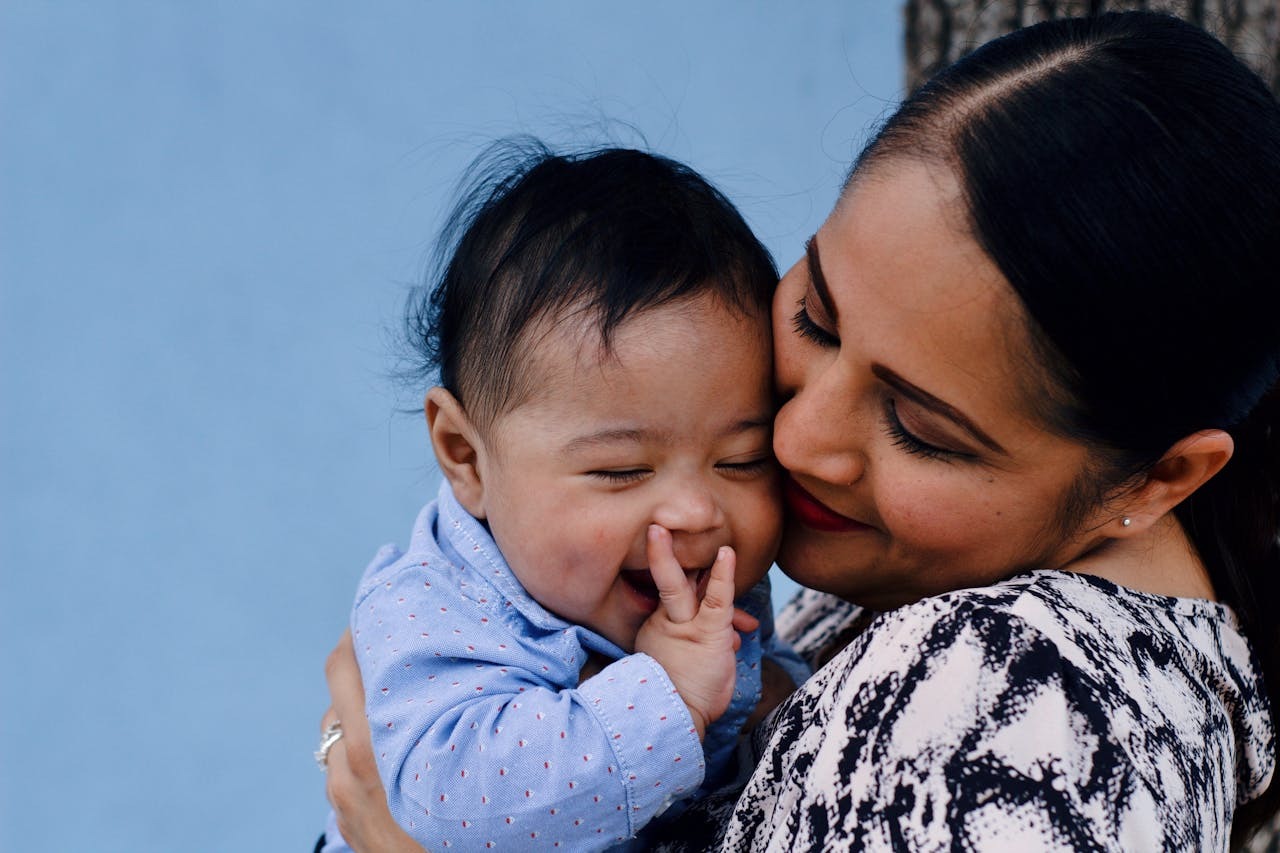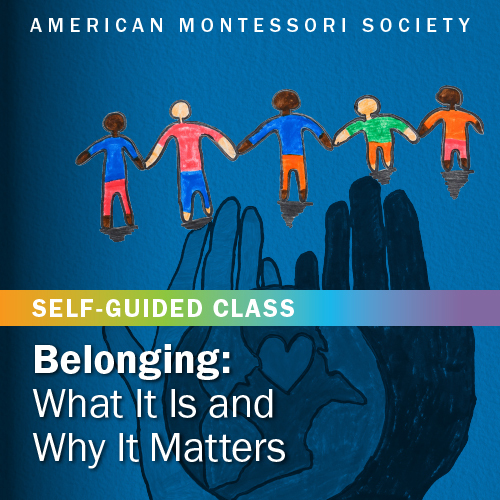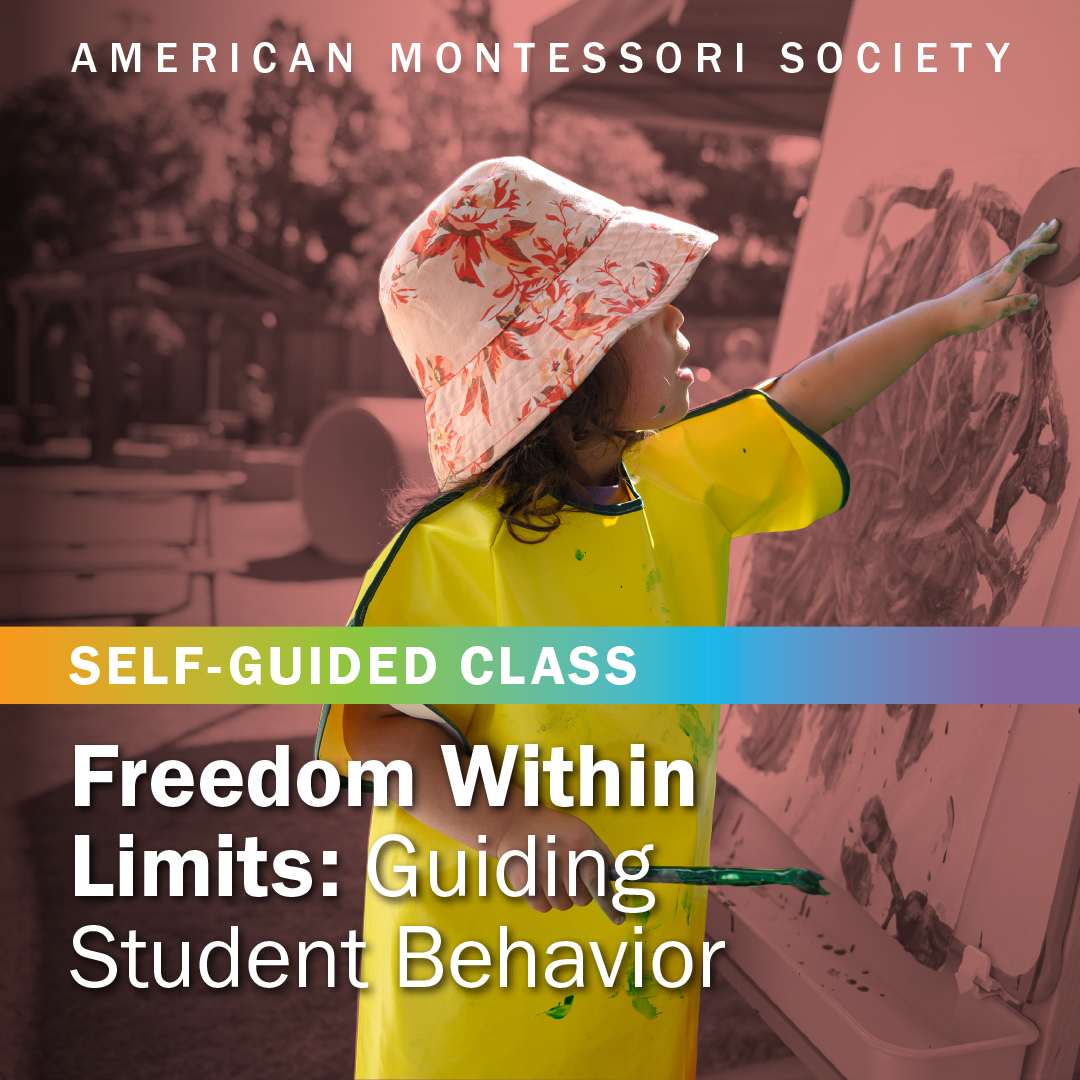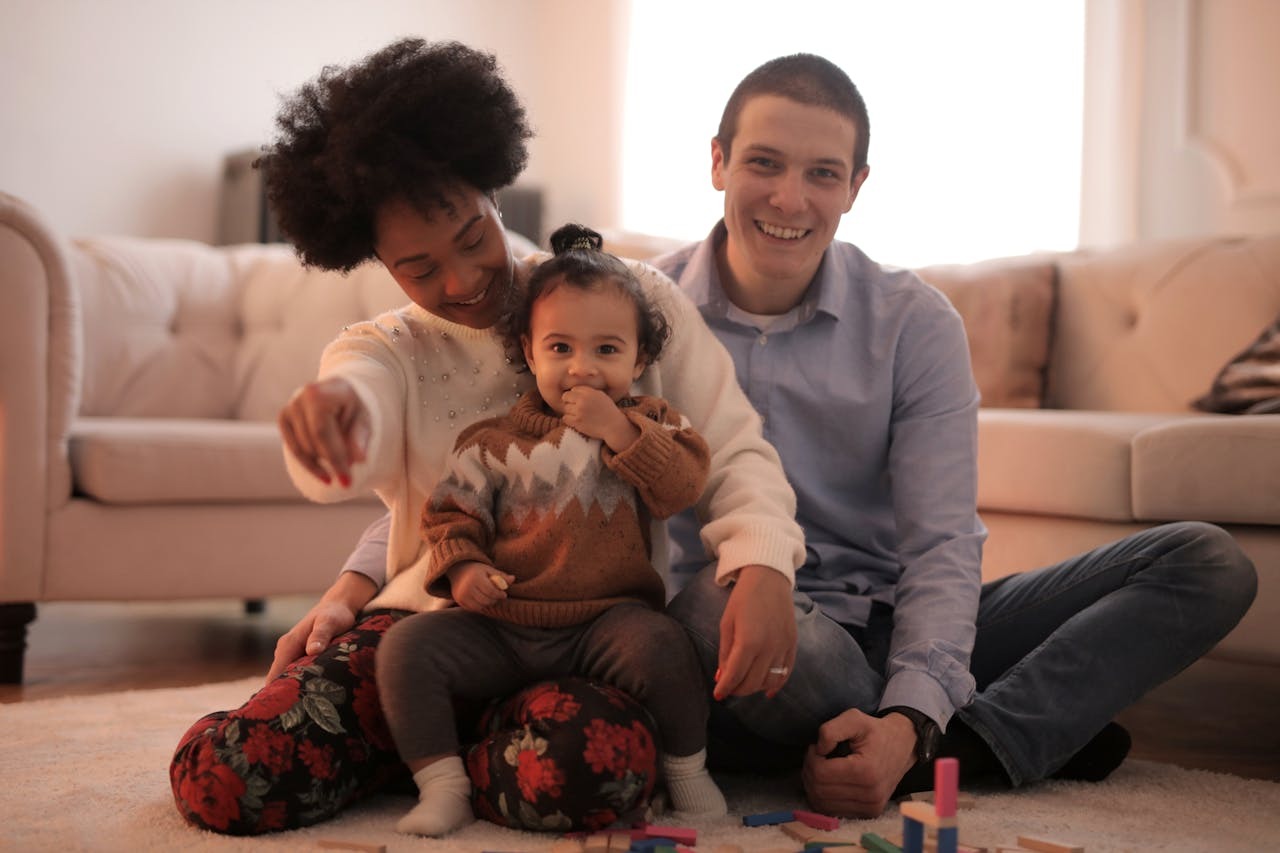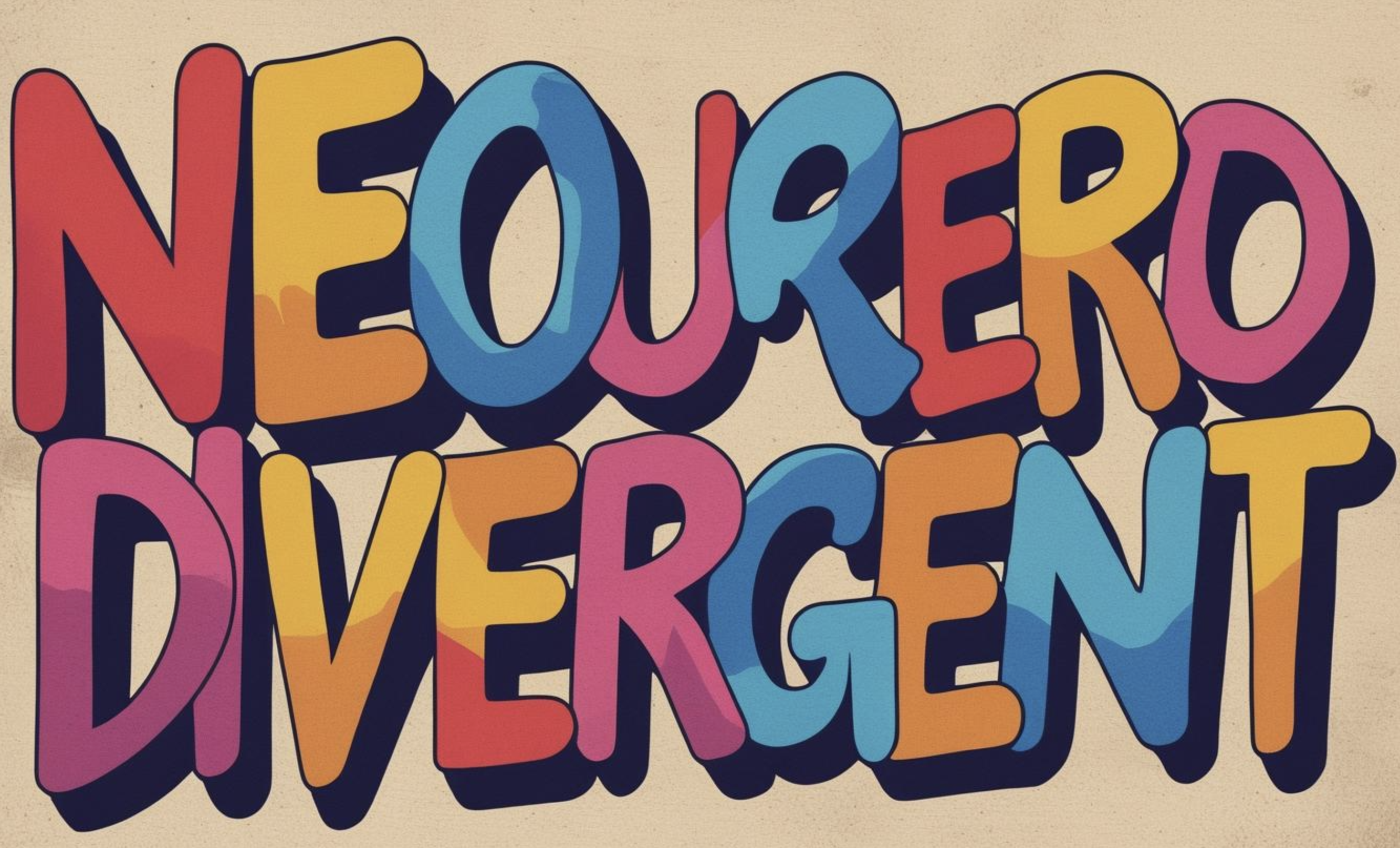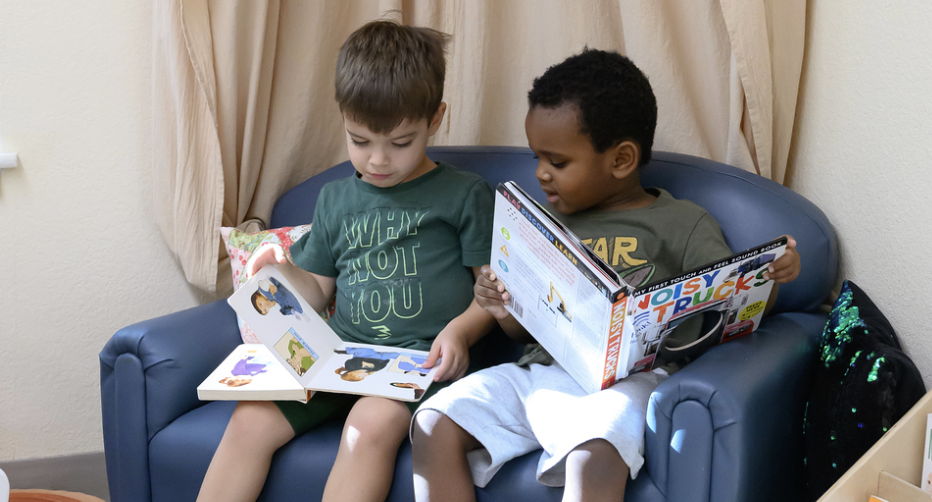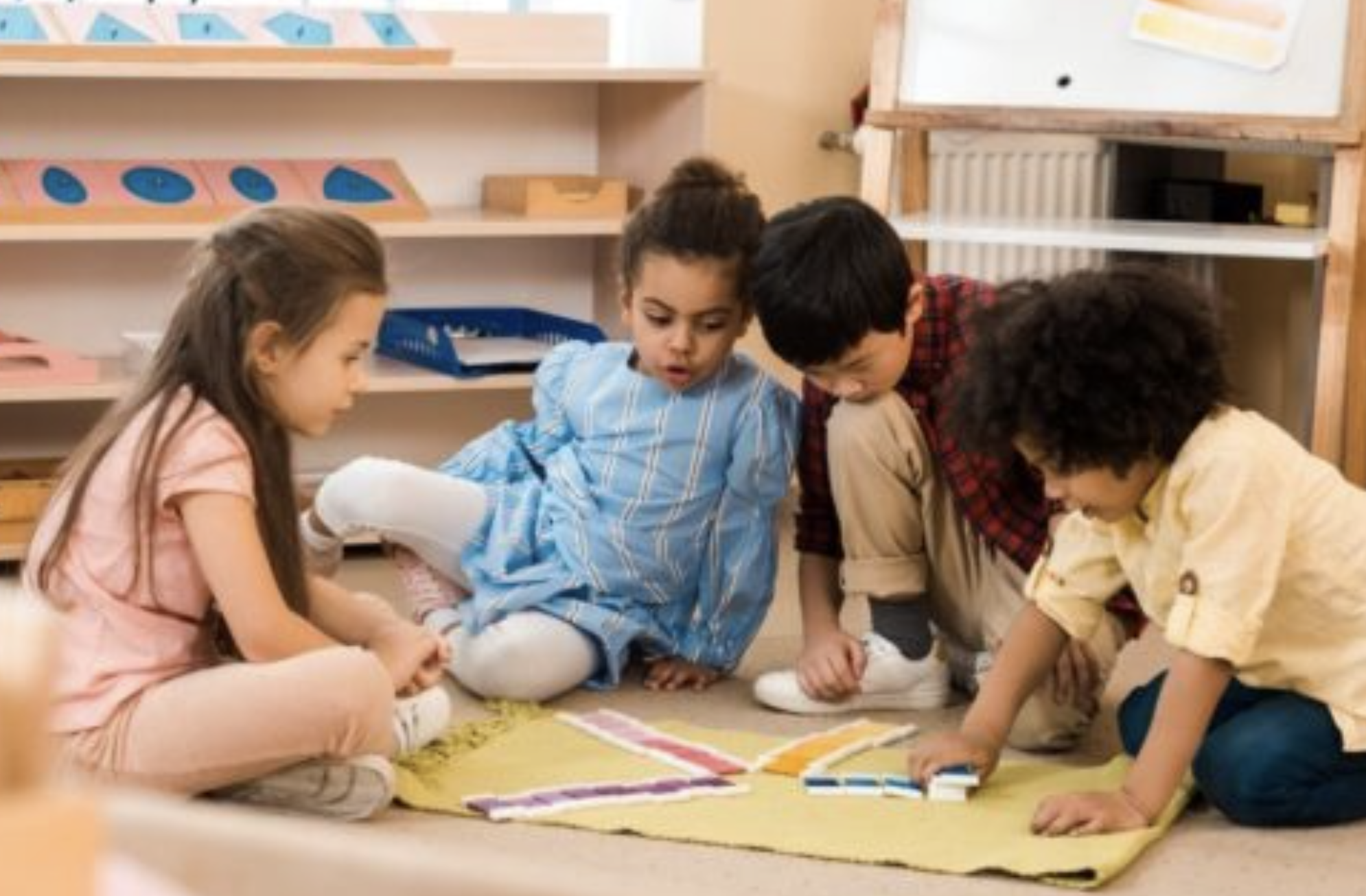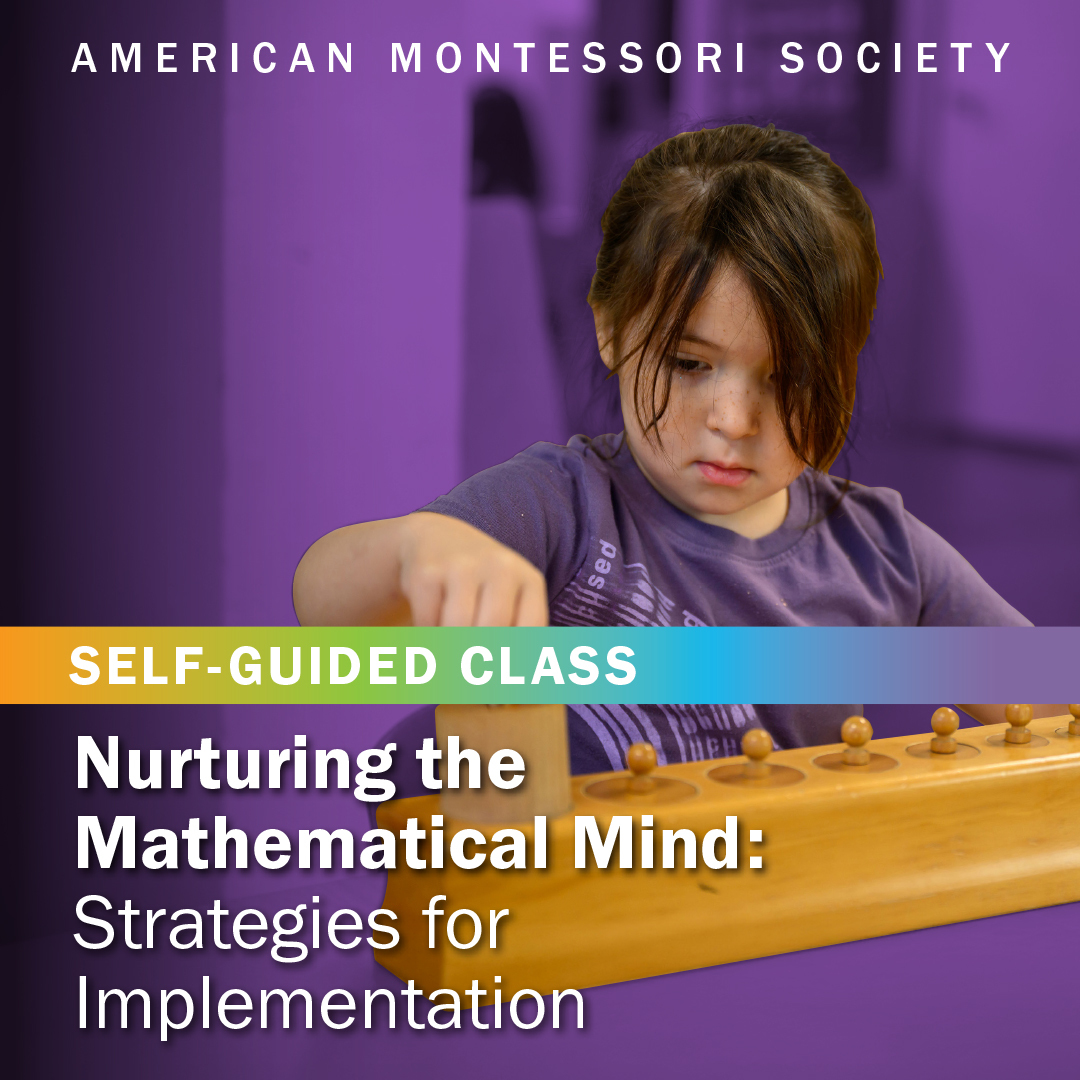
Catalog Advanced Search
-
Contains 3 Component(s), Includes Credits
Explore the foundational elements of mental health in infancy and toddlerhood.
1.5 CPDs, Run Time: 59:03
In this webinar we will explore the foundational elements of mental health in infancy and toddlerhood, emphasizing how both caregivers and guides can foster emotional resilience, secure attachments, and co-regulation. We will also highlight practical ways adults can prepare themselves to support the emotional needs of young children, particularly as seasons change and routines shift in the summer.
Bre Winston is a Montessori educator, wellness advocate, and community builder committed to liberatory education from birth. Since starting as a Toddler Assistant in 2017, she has worked across all early childhood environments, gaining deep insights into child development. Currently, as a Nido Lead Guide, Bre ensures infants and toddlers thrive in environments that honor their autonomy, emotional well-being, and cultural identity.
Bre promotes culturally affirming Montessori spaces. She volunteers with the Black Montessori Education Fund to increase access to Montessori education for Black children and support Black educators.
Bre is the founder of Soularbee, a wellness brand focused on trauma-informed yoga and holistic health for Black parents, educators, and caregivers. Her work blends Montessori principles with mental health advocacy, embodiment practices, and community care, helping Black and Brown children thrive.
Through teaching, advocacy, and content creation, Bre is reshaping Montessori education to be more inclusive, accessible, and empowering for all children.
-
You must log in to register
- Non-member - $65
- Member - Free!
- More Information
-
You must log in to register
-
Contains 11 Component(s), Includes Credits
This two-hour self-guided class, explores what belonging is and why belonging matters. By the end of this course, you will have a deeper understanding of your own definition of belonging as well as insight into why you should and how you can cultivate inclusive, connected, and thriving learning communities.
3 CPDs, Estimated to take 2 hours to complete
In this two-hour self-guided class, you will explore what belonging is and why belonging matters, particularly in learning environments. You will also have the opportunity to consider how diversity, equity, inclusion, and belonging (DEIB) shapes your school, classroom, and community. By the end of this course, you will have a deeper understanding of your own definition of belonging as well as insight into why you should and ways you can cultivate inclusive, connected, and thriving learning communities.
The class will take approximately two hours to complete with no homework assignments. Each of the two class lessons/modules of this dynamic multimedia course includes a short introduction, content for the participant to review (including videos, podcasts, readings, resources, etc.), a game or activity related to the content, and a required discussion post. Each lesson/module is estimated to take approximately one hour to complete. You will have 180 days (approx. six months) from the date of purchase to complete the class and download the certificate that grants three hours of professional development. For the best user experience, we recommend using a desktop/laptop, but content can also be accessed on mobile devices. Certificates will only be awarded for full completion of the class.
As you interact with diverse content, pause for personal reflection, and participate in discussion board conversations, you will:
- Identify and examine what it means to belong.
- Develop a greater understanding of the significance and impact of belonging.
- Explore how diversity, equity, and inclusion support a culture of belonging within schools, classrooms, and communities.
- Examine connections between equity and belonging
By registering for this class, you are agreeing to AMS Terms of Service.
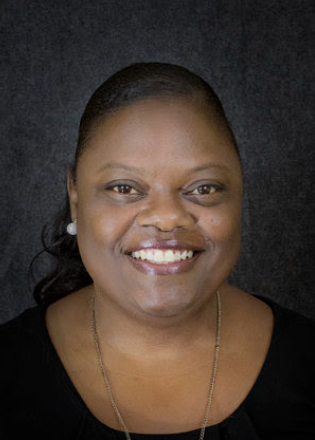
Cathy Durand-Horne
AMS DEIB Consultant
Cathy Durand-Horne is an Advanced level, state-approved Child Development Associate trainer with an AMS Infant and Toddler Montessori teaching credential and a BA in Psychology and Economics from Denison University. Cathy has over 20 years of experience in the field of early childhood education, teaching, developing curriculum, consulting, and providing professional development. She is very passionate about empowering teachers in Montessori and traditional Early Learning environments. In addition to being an instructor and field consultant for multiple Teacher Education Programs, Cathy is also the founder of Intentional Logic Group, LLC, a consulting firm that focuses on improving the quality of learning environments intentionally by providing teacher mentorship, classroom consultation, and DEIB strategies. Cathy currently serves as the Diversity, Equity, Inclusion and Belonging(DEIB) Consultant for AMS and brings a wealth of information, experience, and knowledge to her work.
Pricing
Non-Members AMS Members $60 $40 With an AMS membership, our professional development is free or at a significantly reduced rate. Find out how you can save on PD by exploring AMS membership.
Registering someone else or a group? Contact Us
-
You must log in to register
- Non-member - $60
- Member - $40
- More Information
-
Contains 20 Component(s), Includes Credits
This AMS on-demand, self-guided class is an introduction to the Montessori principle of "freedom within limits" and its application to student behaviors at each of the four planes of development. Participants will explore the teacher’s essential role in self-preparation and preparing the classroom environment while learning practical strategies to balance autonomy with supportive boundaries.
8 CPDs, Estimated to take 6 hours to complete
This self-guided class serves as an introduction to the Montessori principle of "freedom within limits" and its application to student behaviors at each of the four planes of development. Participants will gain insight into the teacher’s essential role in preparing themselves and the classroom environment. Through opportunities to share strategies and reflect, educators will learn to cultivate an environment that respects children’s autonomy while providing the supportive boundaries they need to thrive.
This class is an introduction, and the recommended audience is new teachers (EC, EL, SEC), assistants, and specialists. The class will take approximately six hours to complete with no homework assignments. Each of the six lessons/modules in this dynamic multimedia course includes a short introduction, engaging content including videos, podcasts, readings, and resources, a game or activity related to the content, and a required discussion post. Each lesson/module is estimated to take approximately one hour to complete. You will have 180 days (approx. six months) from the date of purchase to complete the class and download the certificate that grants eight hours of professional development. For the best user experience, we recommend using a desktop/laptop, but content can also be accessed on mobile devices. Certificates will only be awarded for full completion of the class.
Learner Outcomes
- Explain the principles of freedom within limits at each plane of development.
- Recognize the teacher's role in facilitating freedom within limits.
- Identify strategies to foster a balanced environment of freedom within limits.
By registering for this class, you are agreeing to AMS Terms of Service.
Pricing
Non-Members AMS Members $150 $120 With an AMS membership, our professional development is free or at a significantly reduced rate. Find out how you can save on PD by exploring AMS membership.
Registering someone else or a group? Contact Us
-
You must log in to register
- Non-member - $150
- Member - $120
- More Information
-
Contains 3 Component(s), Includes Credits
Unique perspectives on creating and sustaining parent engagement with proven results.
1.5 CPDs, Run time: 1:00
Michelle Morrison, former head of school of Princeton Montessori School, shares experience and unique perspectives on creating and sustaining parent engagement with proven results.
Michelle is a trained and certified leadership coach and school consultant with over thirty years of experience in Montessori school leadership, team building, and human relations. In addition to earning coaching certification through Georgetown University’s Institute for Transformational Leadership, Michelle holds an ACC level certification from the International Coaching Federation (ICF) and completed the Montessori Coaching Program through Public Montessori in Action International (PMIA). Michelle is passionate about supporting those advancing Montessori education and helping others find the insight, wisdom, and impetus to bring their best selves to their work and leadership practice. In addition to coaching and consulting, Michelle serves on the AMS Board of Trustees, instructs for West Side Montessori Training Center’s Administrative course, and volunteers locally in her community.
-
You must log in to register
- Non-member - $65
- Member - Free!
- More Information
-
You must log in to register
-
Contains 3 Component(s), Includes Credits
Explora cómo el corazón de la filosofía Montessori ya proporciona la base para incluir y apoyar a los estudiantes neurodivergentes.
1.5 CPD., RunTime: 1:13
En este taller exploraremos cómo el corazón de la filosofía Montessori ya nos ofrece las bases para incluir y apoyar a estudiantes neurodivergentes. No se trata de tener todas las respuestas o ser especialistas en educación especial, sino de aprender a observar sin juicio, preparar el ambiente con intención, y regularnos como adultos para ofrecer seguridad y conexión. Compartiré herramientas prácticas y estrategias que ayudan a transformar el aula en un espacio verdaderamente inclusivo, respetando el ritmo, las necesidades y los talentos únicos de cada niño.
María Eva Chaffin es educadora Montessori con más de 25 años de experiencia trabajando con niños neurodivergentes. Es fundadora y directora de Seeds of Life Montessori Academy, y cuenta con una Maestría en Educación Especial, una Maestría en Educación Empresarial, una Licenciatura en Educación Especial y certificación Montessori. María Eva ofrece formación y acompañamiento a docentes y administradores en todo el mundo, ayudándolos a crear entornos inclusivos que respeten las necesidades individuales de cada niño. Es autora publicada, presentadora frecuente en conferencias Montessori, y apasionada por compartir herramientas prácticas para apoyar a todos los estudiantes, desde una mirada humana, informada y basada en la filosofía Montessori.
-
You must log in to register
- Non-member - $65
- Member - Free!
- More Information
-
You must log in to register
-
Contains 4 Component(s), Includes Credits
This session will explore the importance of Social Emotional Learning (SEL) in early childhood brain development, framed within Dr. Maria Montessori's educational philosophy.
1.5 CPDs, Run time: 1:06:45
This session will explore the importance of Social Emotional Learning (SEL) in early childhood brain development, framed within Dr. Maria Montessori's educational philosophy. It will highlight the interconnectedness of social, emotional, and cognitive growth, drawing from brain science and child development research. The presentation will discuss the significance of early relationships, emotional experiences, and cognitive opportunities, along with Dr. Montessori's model for creating environments that integrate mind and body. Attendees will learn how key factors like genes and epigenetics shape brain development, and how emotionally safe, cognitively stimulating environments support SEL. The session will emphasize how social relationships influence brain development, focusing on emotional regulation and well-being. Concluding with a call for a holistic educational approach, the presentation will provide insights for educators on fostering environments that support SEL and optimal brain development.
Veronica Burbano is an experienced 3-6 AMI Primary Trainer and international examiner with over 16 years in Early Childhood Education. She currently trains future Montessori educators at the Montessori Training Center Northeast (MTCNE) in Melrose, Massachusetts. Veronica began her career at the GVSU Lab School in Michigan and earned her AMI Primary diploma at MTCNE. She later developed a bilingual program at Amherst Montessori School, where she spent over a decade mentoring children, assistants, and families. Veronica holds a Bachelor’s in Business and Marketing and an M.Ed. in Early Childhood Education. She also mentors for GCLL and conducts workshops globally.
-
You must log in to register
- Non-member - $65
- Member - Free!
- More Information
-
You must log in to register
-
Contains 3 Component(s), Includes Credits
An in-depth exploration of the core components of Montessori education.
1.5 CPDs, Runtime: 54:47
This webinar will cover an in-depth exploration of the core components of Montessori education. We will examine how these components manifest in our unique school and classroom settings, and how they can help us foster equitable spaces where all students can thrive and feel a sense of belonging. Additionally, we will discuss how these components can serve as tools for teachers to reflect on their day-to-day practices and encourage a cycle of continued reflection.
Cynthia Barraza is AMS School Quality Manager. She serves as a guide and support to all schools in the AMS Pathway of Continuous School Improvement. She has been involved in Montessori for 20+ years. She started her journey as an elementary directress, guiding children 6 – 12 years old. Later she founded, and led Discovery Garden Montessori School, in Springfield, MO for more than a decade. During her time at DGMS she taught elementary and early childhood for several years. Her passion though is in adult development and how to utilize Montessori principles in school leadership and teacher professional development. She holds a Master’s Degree in Elementary Education. AMS – credentialed (Early Childhood)
-
You must log in to register
- Non-member - $65
- Member - Free!
- More Information
-
You must log in to register
-
Contains 17 Component(s), Includes Credits
This four-hour, self-guided class discusses how the Montessori environment nurtures mathematical thinking and aligns with cognitive learning theory. Learners will discover ways to adapt Montessori Math lessons to meet diverse learner needs, and how you can foster a mathematical mind across all areas of the classroom and daily life.
5 CPDs, Estimated to take 4 hours to complete
In this four hour, self-guided class, you will identify connections between Dr. Maria Montessori’s concept of the mathematical mind and modern cognitive theories of learning. You will discuss how the carefully designed Montessori classroom environment naturally supports mathematical thinking and problem-solving and identify ways to adapt the Montessori Mathematics curriculum to meet the needs of diverse learners. Along the way, you will also explore innovative strategies for fostering the development of the mathematical mindset across all areas of the classroom and daily life.
With videos, additional reading, interactive activities, and discussion, this class offers several ways you can deepen your knowledge about how to support learners’ mathematical mind.
The class will take approximately four hours to complete with no homework assignments. Each of the four class lessons/modules of this dynamic multimedia course includes a short introduction, content for the participant to review (including videos, podcasts, readings, resources, etc.), a game or activity related to the content, and a required discussion post. Each lesson/module is estimated to take approximately one hour to complete. You will have 180 days (approx. six months) from the date of purchase to complete the class and download the certificate that grants five hours of professional development. For the best user experience, we recommend using a desktop/laptop, but content can also be accessed on mobile devices. Certificates will only be awarded for full completion of the class.Learner Outcomes
- Identify key connections between Montessori’s mathematical mind and cognitive learning theories.
- Discuss how the Montessori classroom environment supports mathematical thinking
- Explore adaptations to the Montessori Mathematics curriculum to meet diverse learner needs.
- Identify opportunities to nurture the mathematical mind beyond direct math lessons.
By registering for this class, you are agreeing to AMS Terms of Service.
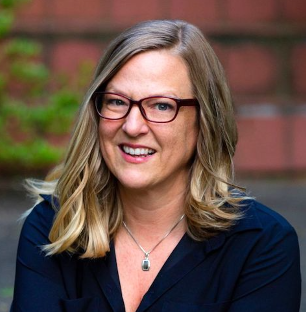
Jana Morgan Herman
Jana Morgan Herman has more than 30 years of experience in Montessori education (public and private) and has been a teacher educator since 2001. She is National Director of Montessori Education for Endeavor Schools. She writes and presents on Montessori topics and hosts the Montessori Bookclub Podcast. AMS-Credentialed (Early Childhood), Certified: Resources for Infant Educarers (RIE), Montessori & Dementia Care, Montessori Applied to Children at Risk (MACAR), and Trauma-Informed Teaching.
Pricing
Non-Members AMS Members $100 $80 With an AMS membership, our professional development is free or at a significantly reduced rate. Find out how you can save on PD by exploring AMS membership.
Registering someone else or a group? Contact Us
-
You must log in to register
- Non-member - $100
- Member - $80
- More Information
-
Contains 3 Component(s), Includes Credits
Learn three personal boundaries you can use immediately in the classroom to foster core building blocks in emotional intelligence.
1.5 CPDs, Run Time: 48:15
Your students' emotional intelligence and ability to self-regulate prove to be among the most important factors that contribute to the emotional and spiritual environment in the classroom. In this workshop, classroom rules are reframed as personal boundaries, which promote social emotional language, conflict resolution, and self-responsibility. Teachers will walk away from this presentation with three personal boundaries they can use immediately in their classroom to foster core building blocks in emotional intelligence, such as interdependence, compassion, and understanding of perspectives.
Elizabeth Willis, PhD, is a lead Montessori Elementary teacher of over 21 years at Casa Dei Bambini Montessori School, an Adjunct Professor at Florida International University and a Montessori Teacher Trainer at the International Center for Montessori Studies, all located in Miami, FL. Most recently, she is the founder of The New Paradigm Teaching Institute whose mission is to bring teacher wellness to the forefront of education. AMS credentialed (Early Childhood, Elementary 1 &2).
-
You must log in to register
- Non-member - $65
- Member - Free!
- More Information
-
You must log in to register
-
Contains 3 Component(s), Includes Credits
Join this deconstruction and reconstruction of the Montessori philosophy in the first plane and what it means in everyday practice.
1.5 CPDs, Run Time: 1:35:14
“Reframing the propositions of any original thinker in light of subsequent intellectual and cultural events is the inevitable task of those who follow.” –Nancy Rambusch and John Stroop. We follow Dr. Maria Montessori and a pedagogical approach steeped in her observations and vision for the future. How did these ideas come to pass, what influenced them, and how do they hold up today and into the future? Join this deconstruction and reconstruction of the Montessori philosophy in the first plane and what it means for us in everyday practice.
Simone Davies is owner of Jacaranda Tree Montessori in The Netherlands and an Infant & Toddler guide of nearly 20 years. Her passion is helping families bring Montessori into their homes. She is author of "The Montessori Toddler” and co-author of “The Montessori Baby” and “The Montessori Child." She also has a popular blog, Instagram, and podcast, “The Montessori Notebook” and is mother to two young adults. AMI credentialed (Infant & Toddler), AMI assistant (Early Childhood, Elementary, Adolescent)
Jana Morgan Herman has more than 30 years of experience in Montessori early childhood education, in both public and private settings, and has been a teacher educator in the US and internationally for two decades. Currently, she serves as national director of Montessori education for Endeavor Schools. In addition to Montessori certifications, Jana has training in Resources for Infant Educarers, Montessori and Dementia Care, Montessori Applied to Children at Risk (MACAR), and Trauma-Informed Teaching.
Catherine Mason is an international education consultant and instructor for Infant & Toddler programs. She has taught at the Infant & Toddler level since 2013 in Atlanta, GA, and in Beijing and Shenzhen, China. She holds a bachelor's in English and music. Catherine has training in the Reggio Emilia play-based curriculum, which enhances her creativity for Infant & Toddler communities. AMS credentialed (Infant & Toddler)
Martha Teien is the founding and executive director of Mountain Montessori in Avon, CO, which opened in 2004. She remains a lead guide in the primary classroom. Martha’s Montessori training was completed through Montessori Educational Programs International for the 3-6 level. She obtained her MEd in Montessori at St. Catherine University in St. Paul, MN. Martha graduated from the first cohort of the AMS Instructor Academy in 2023. She is also a member of the first cohort of the University of Wisconsin River Falls doctoral program. In a continuing effort to support the Montessori movement, Martha serves as the president of the board of directors for MPPI and sits on the Regional Action Commission of the American Montessori Society.-
You must log in to register
- Non-member - $65
- Member - Free!
- More Information
-
You must log in to register
